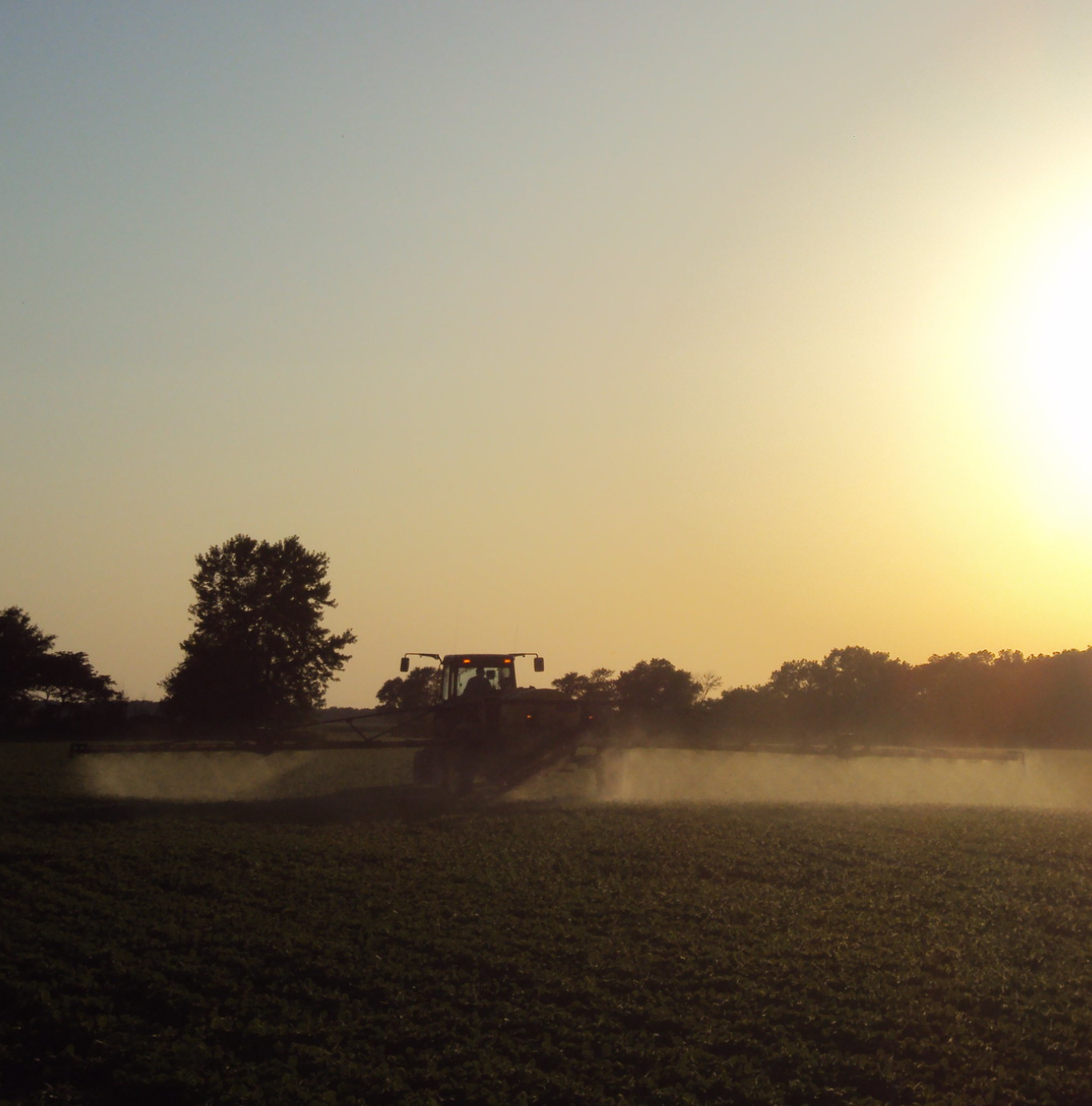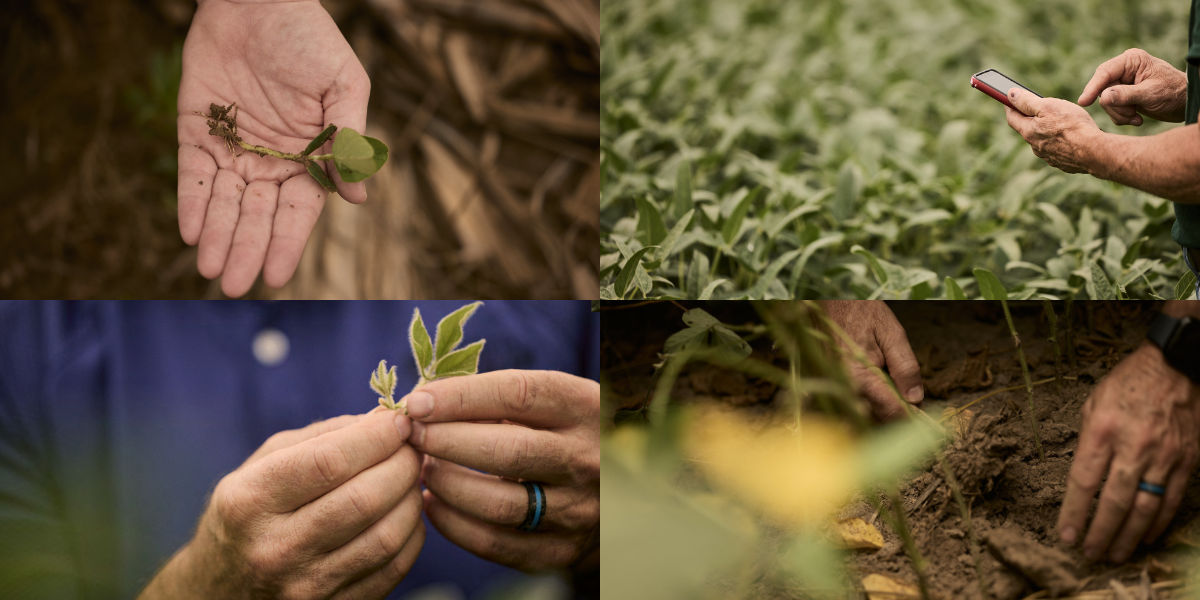What will happen if one of the most relied-upon herbicides in modern agriculture suddenly disappears from the market? That’s the question farmers are being forced to consider after Bayer’s CEO publicly stated this spring in an interview with The Wall Street Journal that the company might stop selling glyphosate-based products, such as Roundup, in the U.S.
It’s important to state unequivocally that such a scenario is somewhat hypothetical at this time. As of this writing, Bayer has announced no such decision. Even if they were to exit the product, I expect there would be a clear plan that would give farmers, agriculture retailers and other stakeholders time to adapt.
That said, it’s widely known that glyphosate faces mounting legal pressure. If the tool became unavailable in the future, it would raise profound questions about weed control, crop management and the future of other crop protection tools farmers have depended on for decades.
In this article, I’ll give you the inside track—explaining how we arrived at this moment, what glyphosate’s potential withdrawal could mean for your farm operation, and what you can do right now to stay ahead.
How We Got Here
A bit of backstory: Monsanto held exclusive rights to glyphosate until 2000, which was the active ingredient in its flagship product, Roundup. When the patent expired that year, it opened the door for other manufacturers to produce glyphosate-based products, leading to a significant increase in its use both in agriculture and in urban settings.
The current wave of legal challenges began in 2015, when the International Agency for Research on Cancer (IARC) classified glyphosate as “probably carcinogenic to humans.” This classification stood in contrast to the U.S. Environmental Protection Agency’s (EPA’s) position, which maintained that glyphosate is “not likely to be carcinogenic to humans.”
Several lawsuits were filed against Monsanto prior to its acquisition by Bayer in 2018. After the acquisition, Bayer inherited the legal liabilities. In 2020, Bayer agreed to settle tens of thousands of lawsuits for more than $10 billion. The following year the possibility of Roundup being pulled from the market became more tangible, when Bayer was unable to limit future claims through legal channels. In fact, later that year, the company announced it would withdraw glyphosate-based Roundup from the U.S. residential market.
One major legal challenge driving this conversation is the current split among federal courts about whether EPA labeling protects Bayer from state-level lawsuits. Without a Supreme Court ruling or congressional action to resolve this, Bayer remains vulnerable to ongoing litigation—even with federal approval.
As recently as this year, Bayer has reiterated that without liability protections, it might be forced to withdraw further support for the product. When Bayer’s CEO said they might pull glyphosate in “months, not years,” it was alarming. That said, they’ve got strong relationships with farmers, so I doubt they’d move ahead without a clear plan. Ideally, they’d give farmers plenty of notice to adjust their operations.
It’s important that farmers know Bayer is working hard to avoid this outcome by working with farm groups like the Illinois Soybean Association (ISA) to support outreach and education efforts to the public.
What This Means for Your Farm
Roundup plays a central role in Illinois soybean production by providing effective, broad-spectrum weed control that protects yields and simplifies management. Its use supports conservation tillage, no-till and cover crop systems, which are critical for reducing soil erosion, improving soil health and meeting nutrient management goals. From both an agronomic and sustainability standpoint, Roundup is a valuable tool for Illinois farmers. There are generic glyphosate options and other alternatives available to farmers. But if use patterns suddenly shift, will those alternatives work as well? And is the supply of alternative products sufficient to meet the spike in demand? There are a lot of unknowns.
Farmers should think long-term about on-farm decisions—especially traits tied to glyphosate tolerance, like Roundup Ready soybeans. Glyphosate has been a backbone for weed control for decades, but with the legal and regulatory uncertainty around it, it is wise to consider alternatives. This conversation is less about abandoning glyphosate today and more about not putting all your eggs in one basket. The key is building a weed control system that’s going to work even if one tool gets taken off the table.
What’s Next for Crop Protection?
This moment isn’t just about Bayer or Roundup. It’s about how decisions get made—and whether legal pressure can override regulatory science in shaping the future of farming. Even if Bayer pulls support for Roundup, farmers will still have access to other glyphosate products—for now. The immediate concern isn’t about losing glyphosate overnight. What’s really at stake is the precedent this sets.
If litigation—not science— can drive one company to pull an EPA-approved product, others may do the same. Companies might begin quietly identifying products in their portfolios that pose legal risk and start making decisions based on fear of lawsuits rather than scientific evidence. That could shrink the toolbox farmers depend on and inject even more volatility into an already uncertain industry.
This would also be a huge win for anti-pesticide activists. It shows that litigation pressure works—regardless of what the science says—and could embolden more legal campaigns against other crop protection tools. If that happens, it’s only a matter of time before another product becomes the next target.
Yes, there would be shortterm market shifts if Roundup came off the shelves—off-brand glyphosate demand would spike. But the bigger story isn’t what happens next season. It’s what this moment signals about the future: A path where policy is shaped by courtrooms, not research. Farmers need to understand that this isn’t just about Roundup. It’s about who gets to decide how you farm.
What You Can Do Right Now
Illinois soybean farmers should talk to their neighbors about the safety of their pesticide practices and how they follow science-based EPA guidelines. They should also discuss the key role glyphosate plays in their operations and the potential impact of losing access to it.
ISA is committed to helping farmers deal with production challenges across the board, and we will be here supporting Illinois farmers if any of the hypothetical scenarios I’ve described were to play out.
It’s not enough to grow a crop anymore, you’ve got to grow the conversation too. “Just leave me alone” doesn’t cut it in a world where silence gets filled with misinformation. If we don’t speak up for farming, someone else will—and they probably won’t get it right.
So, get involved. Talk to decision makers. Participate. Show up for your industry. Because at the end of the day, this isn’t just about a product. It’s about protecting your right to decide how you farm.
Recent Articles
In this issue of Illinois Field & Bean Magazine, we're looking forward to the 2026 Soybean Summit.
By
Sulfur is essential for plant growth, yet it's only just becoming a common addition to fertilizer management plans. This shift is no coincidence.
By Darby Danzl, ISA Regional Technical Agronomist

